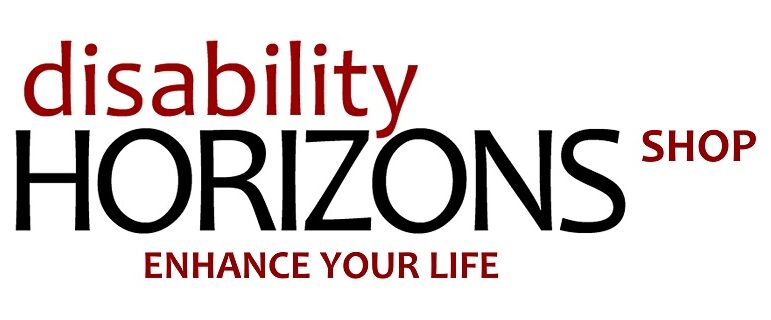A quick guide to finding funding for assistive devices, exploring options such as government programs, grants, foundations, crowdfunding, and medical savings accounts across the UK and USA.
It’s challenging enough to go through life with a disability or chronic health condition. Often, financial constraints make it even more difficult when you need to cover the cost of an assistive device without the funds to do so.
Key Takeaways
| Aspect | UK | USA |
| Government Funding | Assistive Tech Impact Fund, Access to Work | Administration for Community Living (ACL), RESNA |
| Grants | Access to Work, The Headley Trust | RESNA-related grants |
| Foundations | The Headley Trust | UDS Foundation |
| Medical Savings | Bank-offered medical savings plans | Health Savings Accounts (HSAs) |
| Crowdfunding | Platforms like GoFundMe, sharing needs on social media | Platforms like GoFundMe, FundRazr, sharing widely on social media |
There are several avenues you can take when attempting to find assistive device funding. Here are some of those options, including examples to research.
1. Government and Private Funding
Young or old, disabled people in the U.S. and U.K. have several established sources of government and private funding that assist those with disabilities, mental health issues or long-term medical conditions. Options also exist to support disabled students in their ability to study.
- In the U.K., the national government’s Assistive Tech Impact Fund’s AT2030 initiative provides predetermined funding amounts if you need financial assistive technological support. Across the Atlantic, it’s best to contact the federal government’s Administration for Community Living (ACL) to enquire about financial support on offer.
- The Rehabilitation Engineering and Assistive Technology Society of North America (RESNA) is known for funding and providing assistive technology solutions to disabled individuals in the U.S. RESNA’s website also includes access to a plethora of information, including webinars and podcasts, to assist you in your journey.
2. Grants
Applying for the various grants can secure funding for assistive devices useful for a broad spectrum of disabilities. Specific grants are available in the U.K. and America, subject to application approval.
- Access to Work is a U.K. government program set up to assist British disabled citizens and those with severe health conditions with what is needed to do their jobs. It includes financing essential assistive devices if you’re of working age.
- Funds for NGOs, as its name suggests, offers grants of different sizes to nonprofits worldwide. The organization has separate lists of funding opportunities you can apply for through NGOs in the U.S. and around the globe. Many of these are for assisted devices, but locating one suitable for them may take some time.
3. Foundations
Disability and health foundations can primarily assist you or other disabled or chronic health patients with locating assistive device funding opportunities. Most of these target specific disabilities or health problems, so further research is needed to find one that might help you.
- In the U.S., the UDS Foundation can help you secure funding for assistive devices and provides support and assistance in many other ways. It does not provide financing but can direct you to the best contact for your needs.
- The Headley Trust in the U.K. provides finance for a variety of sectors. It grants maximum practical aid funding to increase your mobility options. These monies include covering communication aids and adapted computer setups.
4. Medical Savings
Banks and other financial institutions allow you to save in different ways. Having a specialized health savings account (HSA) means you can save money for future medical expenses on your own terms.
In USA, HSAs are specifically for medical savings, which you can withdraw tax-free to secure your assistive device. Researching these makes sense to plan for your medical future, as you can save on your medical insurance premiums by investing your money in this way.
Unlike the USA, there are no formal health savings accounts (HSAs) specifically designed for medical expenses in the UK. However, individuals can explore alternative financial planning options to cover medical costs. Some insurance plans offer annual coverage for medical expenses, but it is essential to check if these plans cover assistive devices. For instance, private health insurance plans may provide coverage for certain medical expenses, but the specifics regarding assistive devices can vary significantly between providers.
5. Crowdfunding and Social Media
Crowdfunding is an ever-growing way to raise funds for various reasons. More people than ever before have a social conscience. Many of these are in a position to help with donations to worthy causes.
Write a brief but clear statement describing yourself after researching the right crowdfunding website — GoFundMe, FundRazr and Rally are popular options. List the reasons you need an assistive device. Include photographs to support your statement and set the amount you need to raise.
Share your fundraiser on your social media accounts to raise awareness. The more exposure you have, the greater your chances of raising the required amount. The crowdfunding site will take a percentage of the amount raised, but listing your campaign is usually free.
Platforms like GoFundMe are popular in the UK for crowdfunding initiatives. Share your story on platforms such as Facebook or Instagram to gain visibility and encourage donations.
Here are some tips for creating an effective crowdfunding campaign:
- Craft a Compelling Story: Clearly explain your need for an assistive device and how it will improve your life.
- Use High-Quality Images: Include photos of the device and how it will be used to make your campaign more engaging.
Additional Options for Assistive Device Funding
Finding funding for assistive devices can be challenging, but here are more options to consider:
- Charity Organizations: Charities like Turn2Us in the UK provide financial aid to individuals in need, including those requiring assistive devices.
- Local Council Support: Many UK local councils offer disability equipment loans or grants to support individuals needing assistive technology.
- Educational Support Programs: Students with disabilities can access funding through Disabled Students’ Allowances (DSA) in the UK or similar initiatives in the USA.
- Disability-Focused Nonprofits: Organizations like Scope provide guidance and resources to secure assistive device funding.
- Technology Sharing Platforms: Explore platforms that recycle or refurbish assistive devices for free or at low cost, such as Remap in the UK.
Consider contacting a local social worker or disability advocate for personalized assistance in identifying available funding options in your area.
FAQs
Q: How can I get a loan for assistive equipment?
A: Research lenders and apply to an institution. The lender will check your credit score and assess the application. If approved, know your repayment terms and interest rate.
Q: Is crowdfunding for assistive equipment a good option?
Like many online activities, crowdfunding has certain risks. It’s better to ask for a smaller amount initially. Crowdfunding is viable when you’ve exhausted your other fundraising options.
Q: Will NPOs charge me to loan assistive equipment?
Depending on your circumstances, nonprofits may request donations to loan you their equipment. In certain situations, they might allow you to use it free of charge until they need it for other purposes.

